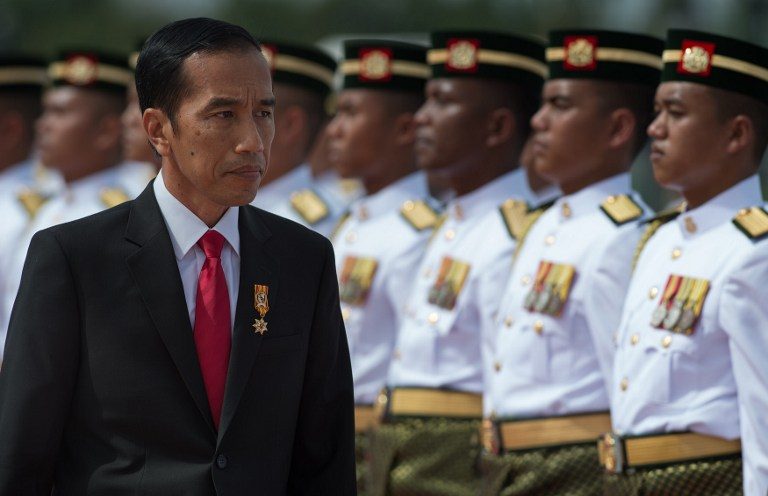SUMMARY
This is AI generated summarization, which may have errors. For context, always refer to the full article.

JAKARTA, Indonesia – It seems Indonesians don’t trust their institutions very much.
Trust in media, non-government organizations (NGOs), business and governments is up across the world, according to an Edelman Trust Global Study presented on Tuesday, February 2.
But Indonesians have become less trusting of all 4 institutions, falling from the post-election positivity that was seen.
The average level of trust in institutions across the world has increased from 55% in 2015, to 60% in 2016. The study found that across the world people trust businesses more than governments or NGOs to keep pace in changing conditions.
But in Indonesia, trust in the government now sits at just 58%, a 7-point drop from the levels seen after the election of President Joko Widodo in October 2014.
Wiwiek Santoso, the President Director at Marga Mandalasakti (Astra Group), emphasized the need for an increase in trust of the government.
“We hope that this year government trust will be improving and hopefully we can solve the problem together,” she said.
Businesses trustworthy
Despite a fall in trust across the board, Indonesians still find businesses as the most trusted organizations said Raymond Siva, CEO of Edelman Indonesia.
“It is business that is most trusted to keep pace with changing times – whether that be the needs of society, changes in technology or dips in the economy,” he said.
However, despite this, Siva believes there is still room for CEOs and high-level leaders to improve their conduct and behavior. (READ: Q&A with Trade Minister: How Indonesia is fixing its ‘misguided’ economic policy)
“After another year of high-level leaders seen to be behaving unethically, Indonesians desire business leaders to be an example of ethical and transparent behavior,” Siva said.
The study also found that in Indonesia and across the world, people were looking for businesses to be more involved in social issues and creating solutions.
“Indonesians want business to lead in tackling societal challenges and drive Indonesia through turbulent and uncertain times,” said Siva.
The study also found that Indonesians in particular were looking for more action from business leaders when it came to the environment, especially in light of the blazes in western Sumatra in September, 2015.
Income inequality
But while the world as a whole appears to be more trusting and has returned to levels not seen since the 2008 Global Financial Crisis, there is widening trust inequality between the top section of the population and the general population.
The gap in trust has increased in 16 of the 25 countries involved in the study, but respondents considered as poor were less trusting of institutions compared to wealthier respondents.
Indonesia was one of only 7 countries that was able to close the gap, with a 2% increase in trust seen within the general population.
The United States of America recorded the biggest trust gap between high and low income earners with a 31-point gap.
France and Brazil were closely behind in trust inequality, recording differences of 29 points and 26 points respectively.
The results come on the back of an Oxfam report that revealed income inequality was rising, with the world’s 62 richest individuals owning as much as the world’s poorest half.
On the rise
Although Indonesia’s trust in institutions has fallen over the past year, they are still one of the most trusting countries in the world with an average of 70% trusting organizations, down from 78% in 2015.
The amount of countries now classified as ‘trusting’ has increased from 22% of those surveyed in 2015, to 39% in 2016.
Distrusting countries now only account for 6 of the 25 countries surveyed, down from 13 countries last year. – Rappler.com
Add a comment
How does this make you feel?
There are no comments yet. Add your comment to start the conversation.